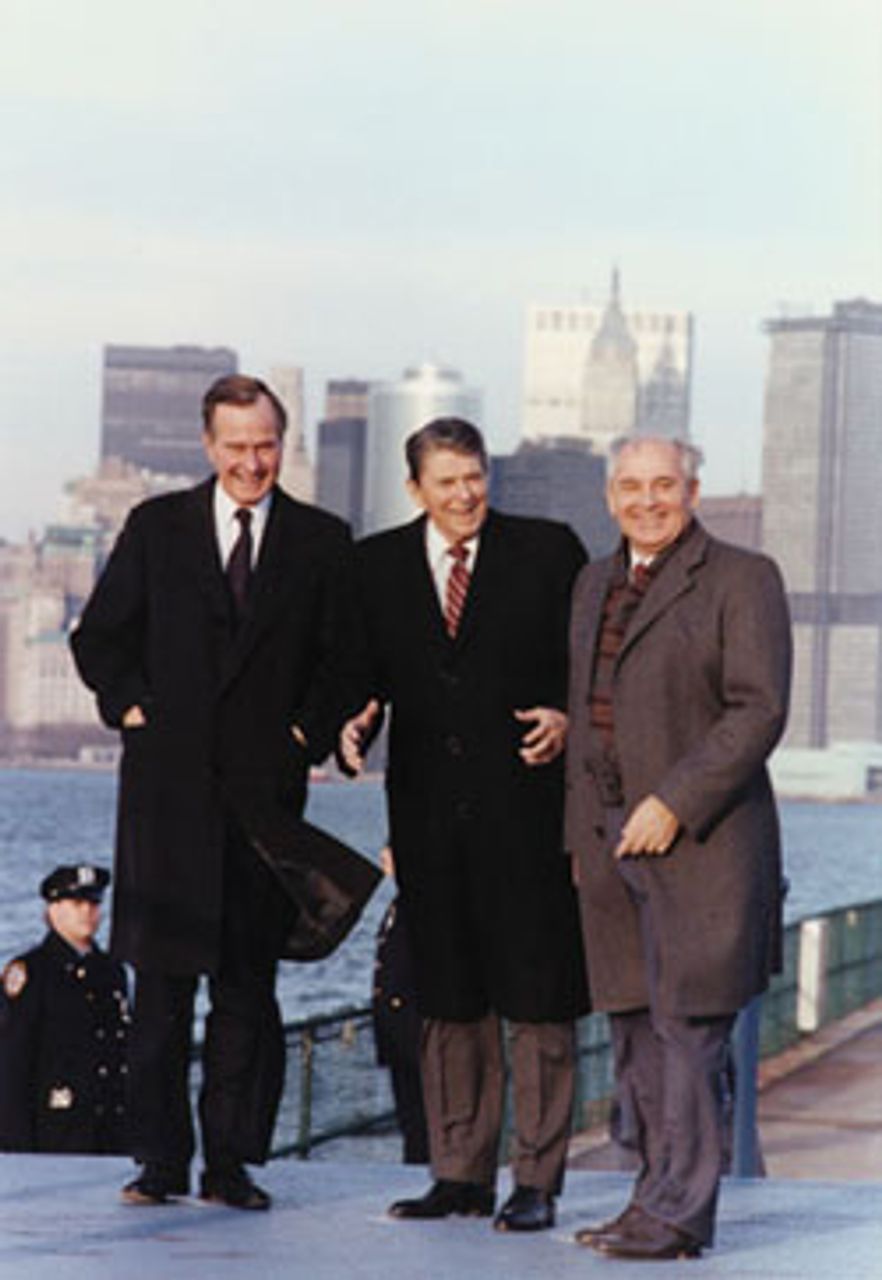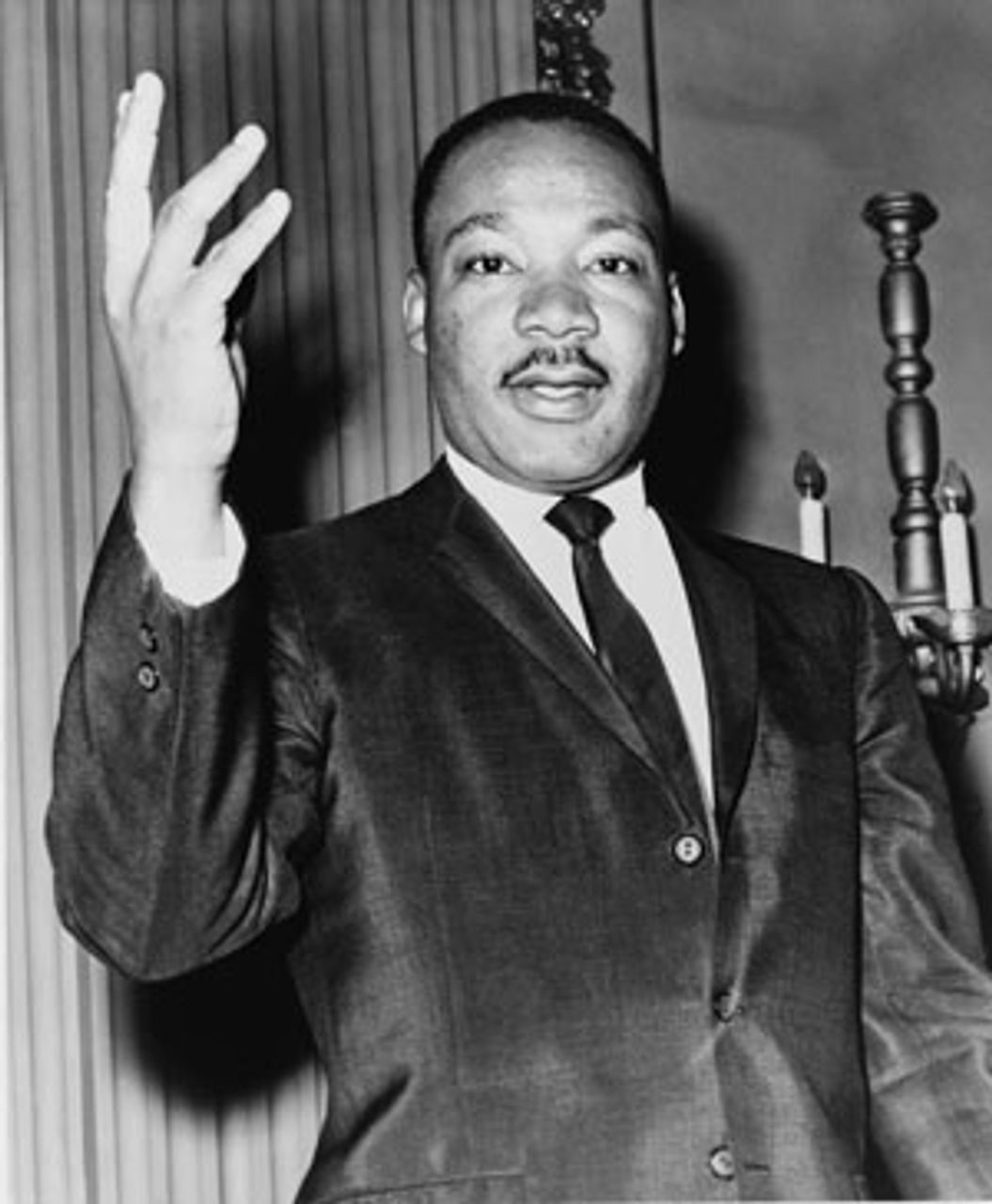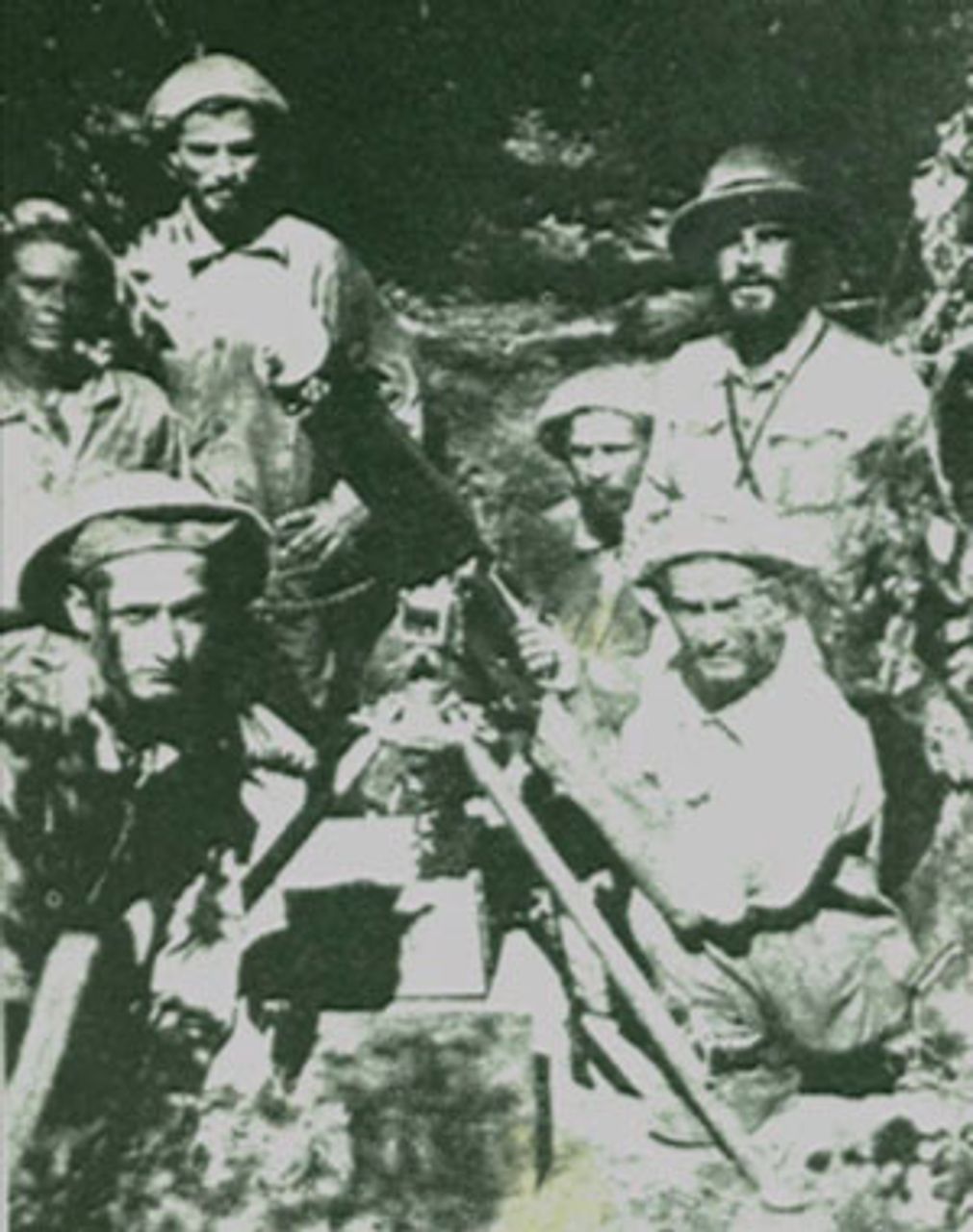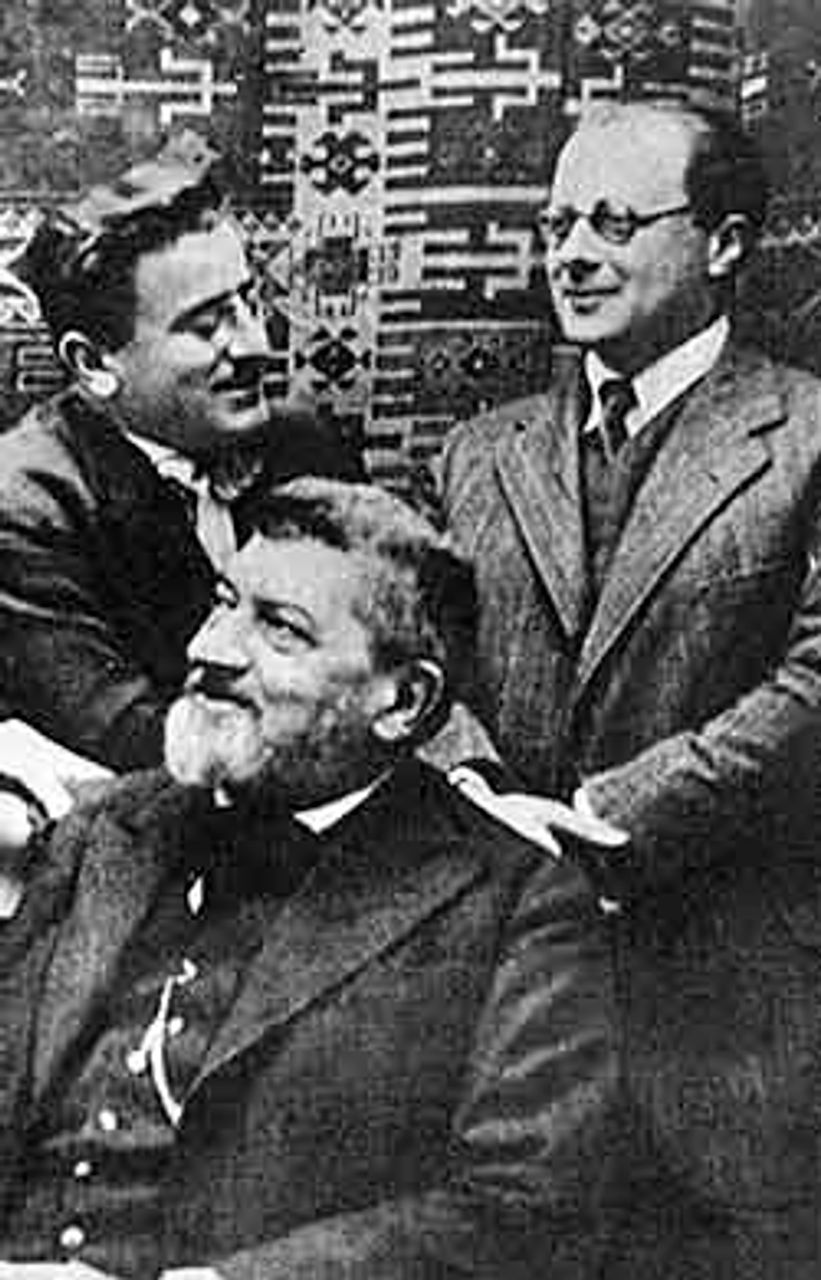This Week in History provides brief synopses of important historical events whose anniversaries fall this week.
25 Years Ago | 50 Years Ago | 75 Years Ago | 100 Years Ago
25 years ago: Draft program of the Soviet Communist Party softens position toward capitalism
 Gorbachev with Ronald Reagan and
Gorbachev with Ronald Reagan and George H.W. Bush, 1989
On October 25, 1985, the Communist Party of the Soviet Union published a draft program that distanced the Stalinist bureaucracy from previous claims about surpassing the West and achieving a communist society.
It was the first draft program since the one produced in 1961 under Nikita Krushchev, which had notoriously declared “the present generation of Soviet people shall live in Communism,” that the USSR would by 1980 surpass the US in labor productivity and industrial production, and that “the world capitalist system as a whole is ripe for a socialist revolution by the proletariat.”
In contrast, the new program pushed the arrival of communism in the Soviet Union to some unstated distant future, and, as opposed to the earlier document, it offered no suggestion that communism might entail improving material conditions for the working class. “The party,” it stated, “does not set itself the aim of foreseeing in detail all the features of full communism.”
In contrast to the pseudo-revolutionary hyperbole of the 1961 program, the CP in 1985 expressed the position that capitalism would endure indefinitely. Astoundingly, the Soviet bureaucracy attributed this endurance to the advance of reformism, capitalism’s granting of “certain improvements in conditions of labor and remuneration, and social security.” This “perspective” was advanced in the midst of the most far-reaching assault on the living standards of the working class in decades, spearheaded by Reagan in the US and Thatcher in the United Kingdom.
The program was written under new party chief Mikhail Gorbachev, who had risen to leadership as the standard-bearer of a “generation of utter cynics ... thoroughly corrupt and totally indifferent to the ideas that formed the moral foundation of the country,” as historian Vadim Rogovin put it. Gorbachev's draft program anticipated the ruling bureaucracy’s attack on the property relations established by the October Revolution.
50 years ago: Kennedy intervenes for imprisoned Martin Luther King
 Martin Luther King, Jr.
Martin Luther King, Jr.With days to go before his 1960 presidential contest with Vice President Richard Nixon, Massachusetts Senator John F. Kennedy intervened to secure the release of Martin Luther King Jr. from a Georgia state prison. Kennedy called King’s wife, Coretta, while Robert Kennedy personally pressured the judge in the case.
King had been arrested for participating in a Georgia sit-in. The misdemeanor charge of failing to vacate private property would not have resulted in prison, but the judge in the case seized on an earlier trumped-up charge against King—operating a motor vehicle without a proper Georgia drivers license—to order King’s jailing for four months. The civil rights leader was hustled away on October 26 in the early morning so that his attorneys could not lodge a habeas corpus plea.
Kennedy’s intervention arose from his emphasis during the campaign on what he argued was the erosion of US global prestige during the Eisenhower administration. He understood that the abuse of King by state authorities was an embarrassment to the US, which was attempting to portray itself in its Cold War duel with the Soviet Union as an unswerving advocate of democracy and freedom.
The move was not without its political risks. The Southern elite had been drifting out of the Democratic Party “New Deal coalition” for some time, and Nixon was leading in the polls in a number of Southern states. During the 1960 campaign, prominent “Dixiecrats” openly campaigned against Kennedy. Among them were Sen. Harry Byrd of West Virginia, Sen. Strom Thurmond of South Carolina, and Gov. S. Ernest Vandiver of Georgia, who defended the prison sentence and called King a “race agitator.”
75 years ago: Chaco War ends
 Paraguayan soldiers
Paraguayan soldiersOn October 28, 1935, the Chaco Peace Conference reached a deal bringing an end to the war between Bolivia and Paraguay. The two countries had been locked since 1932 in a bitter struggle over the Gran Chaco region of South America, believed to be rich in oil reserves.
The peace conference, commissioned by the League of Nations and held in Buenos Aires, Argentina, rescinded the designation of both countries as belligerents. While a cease fire had been brokered between the two states in June, Paraguay still held 28,000 prisoners of war at the time the conference declared the war over.
The Chaco War was the deadliest to be fought on the South American continent during the 20th century. Approximately 100,000 lives were lost during fighting, with Bolivia suffering the heaviest casualties. Bolivian President Daniel Salamanca was overthrown during the war in a coup by his country's military leadership.
Behind the war were the interests of big oil corporations. US oil giant Standard Oil maintained holdings in Bolivia while the British Dutch Shell had holdings in Paraguay. It was later learned that the Gran Chaco region was not rich in oil after all.
100 years ago: Split in Italian Socialist Party brings down Republican officials
 Filippo Turati, in foreground, with Italian
Filippo Turati, in foreground, with Italian socialists
At a congress of the Italian Socialist Party (PSI) held in Milan this week in 1910, the divisions among prominent right-wing members, reformists led by party head Filippo Turati and left-wing “maximalists,” reached a new intensity, with the left prevailing against the standing practice of electoral cooperation with the capitalist Republican party. This led to the resignation of a number of members of parliament, both PSI and Republican.
In the previous national electoral campaign the PSI and the Republicans had worked out a vote-sharing agreement against monarchist and clerical political formations. This allowed the PSI to gain an unprecedented number of seats in the Chamber of Deputies, but it also put it in alignment with political formations backing the imperialist pretensions of Italian capitalism.
Similar pressures were roiling the Second International throughout Europe. The PSI’s alliance with the Republicans most closely mirrored the cooperation of the French Socialist Party with the Radicals. In Germany, the SPD contained sharply divergent tendencies, represented by the struggle of Rosa Luxemburg against the “evolutionary” socialism of Eduard Bernstein. In Russia, the split between the Bolsheviks and the Mensheviks centered on the latter’s tacit support for bourgeois political forces.
Unlike in Russia, in Italy the struggle against the reformists was heavily infused by the Italian radicals’ tendency toward anarcho-syndicalism, with its emphasis on militant action and revolutionary will in lieu of theoretical clarification. One of the more outspoken maximalists at the Milan convention was a first-time delegate from Emiglia-Romagna heavily influenced by syndicalism, Benito Mussolini.
